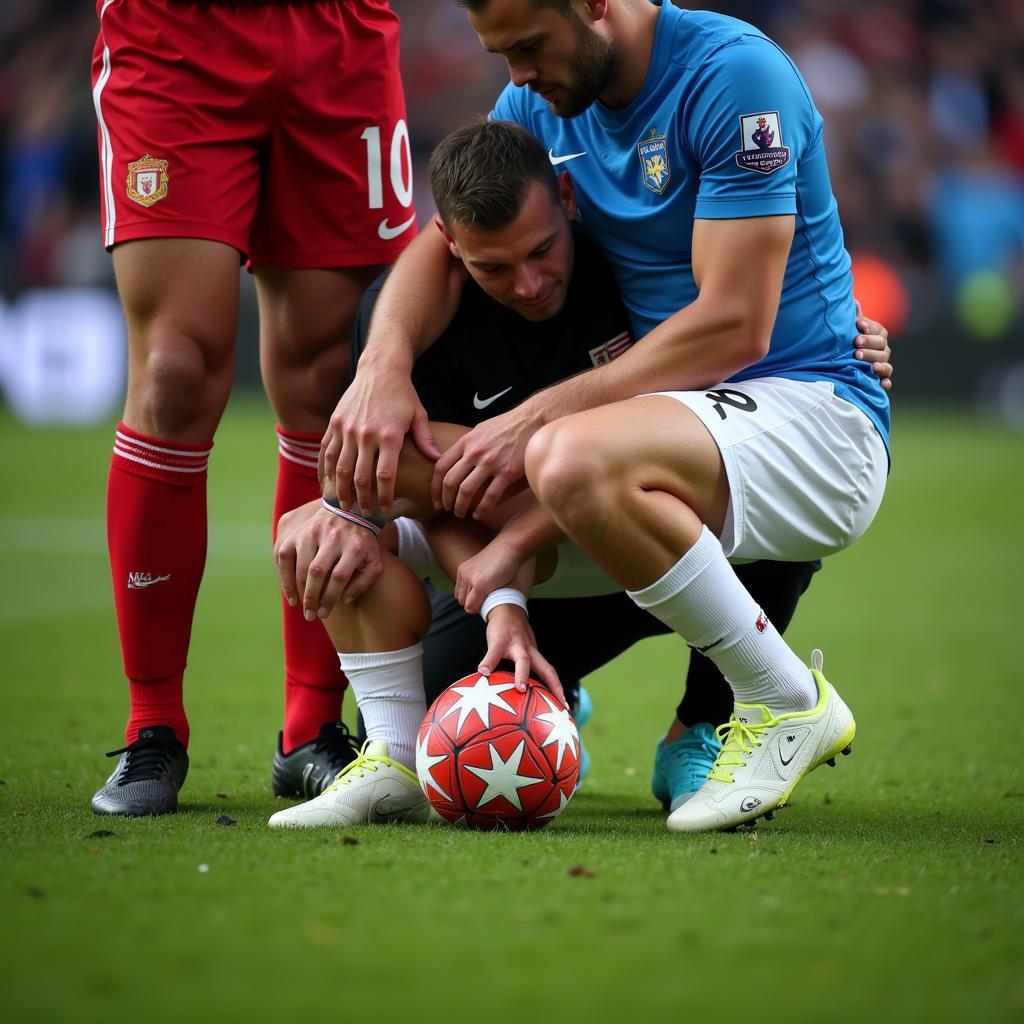Players Refusing National Team Call Ups: Why Does It Happen?
October 22, 2024The world of football was recently rocked by the news of a top player refusing a national team call-up. It begs the question: why would a player, living the dream of many, decline such a prestigious honor? While it might seem baffling at first, several factors can contribute to this seemingly unusual decision.
The Reasons Behind Player Refusals
There’s no single, universally applicable answer to why a player might say no to representing their country. It’s often a complex interplay of personal reasons, professional pressures, and even political stances. Let’s unpack some of the most common reasons:
1. Prioritizing Club Career
 Footballer celebrating a goal with his club team
Footballer celebrating a goal with his club team
For many players, especially those at the pinnacle of their club careers, the demands of top-tier club football can be all-consuming. Champions League, domestic leagues, and cup competitions create a grueling schedule. Players may prioritize recovery and maximizing performance for their clubs, especially if a major tournament is on the horizon.
2. Injury Concerns and Prevention
 Athlete undergoing physiotherapy
Athlete undergoing physiotherapy
The physical toll of professional football is undeniable. Players are often carrying knocks or recovering from more serious injuries. International breaks, while a chance to represent their nation, can also exacerbate existing problems or hinder recovery. Players, in consultation with medical teams, might opt out to safeguard their long-term health and fitness.
3. Disagreements with the Football Association
 Football player and coach in a heated discussion
Football player and coach in a heated discussion
Sometimes, the decision to decline a call-up stems from discord between players and their national team’s governing body. This could be due to:
- Disagreements over player treatment: Issues like playing time, team tactics, or even logistical and travel arrangements can create friction.
- Political or social stances: Players may object to the policies or actions of the football association or the government representing their nation.
- Lack of support for player initiatives: Players might feel their efforts to promote social causes or address issues within the sport aren’t adequately supported by the association.
4. Personal Reasons and Family Matters
Life as a professional athlete doesn’t exempt players from personal challenges. Family emergencies, the birth of a child, or even the need for mental health breaks can all factor into a player’s decision. These personal reasons, while often kept private, are just as valid as any professional concern.
The Impact of Refusals
When a high-profile player refuses a national team call-up, the repercussions can be significant:
- Media Scrutiny and Fan Reactions: The player’s decision is often subject to intense media speculation and fan debate, ranging from understanding to criticism.
- Impact on Team Dynamics: The absence of a key player can disrupt team cohesion and potentially impact performance.
- Strain on Player-Association Relationships: Depending on the reasons behind the refusal, it can strain the relationship between the player and the national team management.
Navigating the Complexities
Players refusing national team call-ups present a complex issue with no easy answers. While it’s easy to jump to conclusions, it’s crucial to remember that these are individuals making difficult decisions based on a myriad of factors.
Understanding the motivations behind these refusals – whether related to physical well-being, professional aspirations, or personal convictions – allows for a more nuanced perspective. Ultimately, open communication and mutual respect between players, national teams, and fans are key to navigating these often-delicate situations.